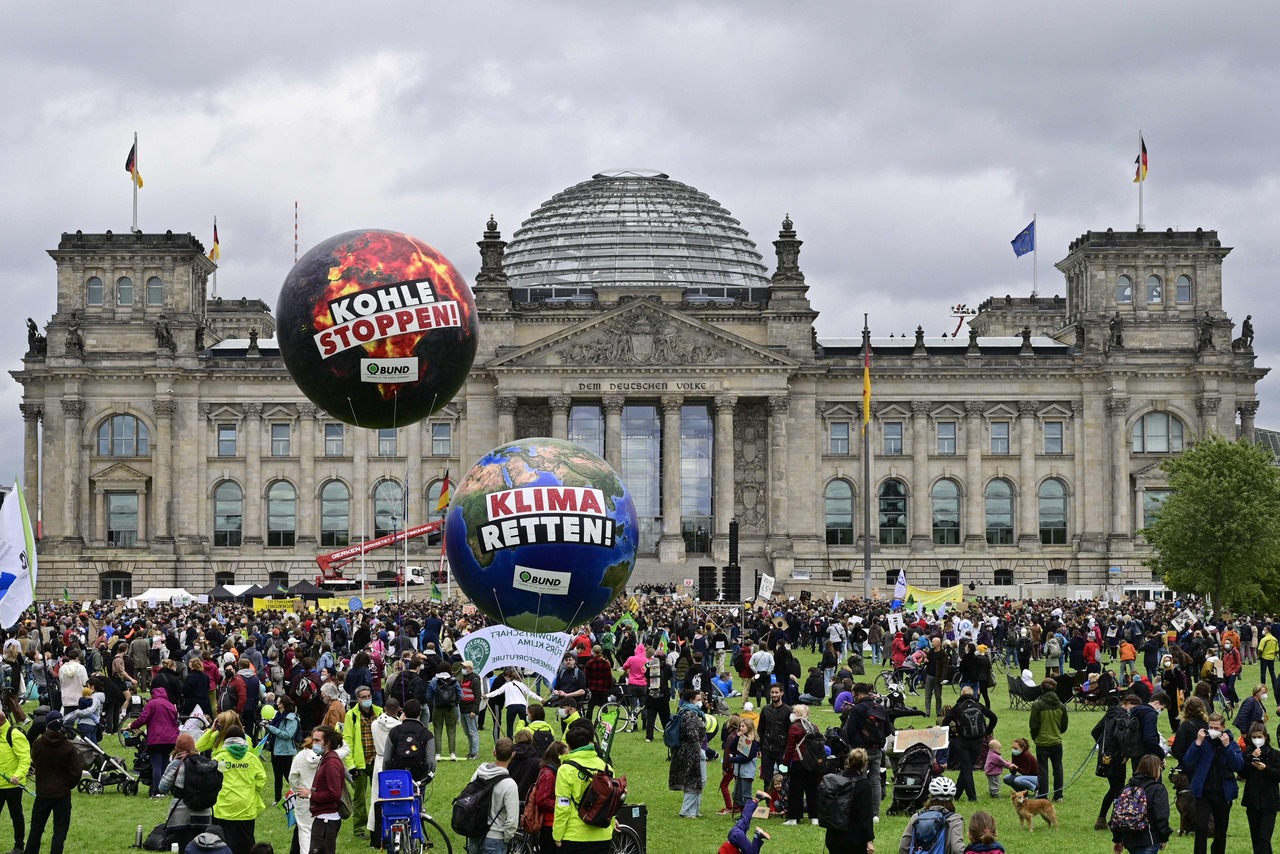In ageing Germany, the young get desperate over climate
Sign up now: Get ST's newsletters delivered to your inbox

Outside Germany's Parliament, a group of activists have been on hunger strike.
PHOTO: AFP
BERLIN (REUTERS, AFP) - In one of the world's most aged countries, some young people are resorting to drastic measures to voice their frustration at politicians' failure to tackle climate change.
Outside Germany's Parliament, a group of activists have been on hunger strike since Aug 30, bringing their demands for more action on climate change in person to the three candidates to succeed Chancellor Angela Merkel.
Now, two days before the election that will bring her time in office to a close, two of the activists have stepped up their campaign, announcing that they will no longer even drink water until their demands are heard.
"We've tried everything," said Ms Klara Hinrichs, spokesman for the two remaining hunger strikers. "Thousands of us were on the street with Fridays for Future. We started petitions. I chained myself to the transport ministry."
Swedish activist Greta Thunberg was in the German capital on Friday as part of a Fridays for Future global climate protest, telling cheering supporters that "no political party" was doing even nearly enough to fight the climate crisis.
"It is clearer than ever that no political party is doing close to enough. But it's even worse than that. Not even their proposed commitments are close to being in line with what would be needed to fulfil the Paris Agreement (on curbing climate change)," she said.
"Yes, we must vote, you must vote, but remember that voting only will not be enough. We must keep going into the streets."
The three chancellor candidates, Mr Olaf Scholz of the Social Democrats, conservative Armin Laschet and Green Annalena Baerbock have not gone to see the hunger strikers, urging them to drop their strike and preserve themselves for future battles.
But while the other hunger strikers have now dropped their campaign, Mr Henning Jeschke, now wheelchair-bound and very gaunt, and Ms Lea Bonasera have vowed not to drink until Mr Scholz, leading in the polls, either comes to them or declares there is a climate emergency.
"To the activists in hunger strike I say: I will stick to the agreement and speak to them after the election," Mr Scholz wrote on Twitter on Friday. "But now they must save their own lives and stop."
Germany has long been in the vanguard of climate activism, giving birth to the first Green Party to win national prominence, and all parties are committed to action on climate change.
But its population also has the oldest median age in the European Union, and successive elections have revealed a gulf between the young, most exposed to the long-term impact of rising temperatures, and the old for whom climate change is one of many competing worries.
After a recent television debate, polls found that more than half those aged 18 to 34 thought Ms Baerbock, the Green candidate, had won, compared with a fifth of older people, who were far more convinced by the SPD's and conservatives' candidates.
"The intergenerational pact has been broken," reads the poster with which the seven original hunger strikers announced their campaign.
But Ms Baerbock, at 40 the youngest of the three candidates for chancellor, also sided with Mr Scholz.
"Don't throw your lives away," she told them via newspaper Die Welt. "Society needs you."


